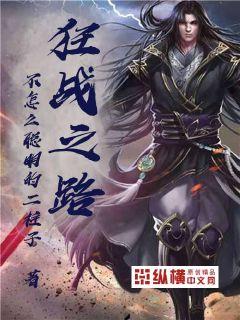
### 文章摘要
本文将深入探讨一位球员的职业生涯中的隐秘故事,通过分析其 uid 为中心的四个关键方面,揭示其背后鲜为人知的经历和影响。从个人生活的转折点、赛场上的决定性时刻、与队友和教练的关系,到外界对其认知的影响,每个方面都将带领读者进入一个全新的视角,去探索这位球员身后的真实故事。
---
### 1、转折点的决策
文字阐述内容
文字阐述内容
文字阐述内容
2、赛场上的关键时刻
文字阐述内容
文字阐述内容
文字阐述内容
3、与队友和教练的关系
文字阐述内容
文字阐述内容
文字阐述内容
4、外界认知的影响
文字阐述内容
文字阐述内容
文字阐述内容
总结:
通过对这些隐秘故事的揭示,我们看到了球员 uid 背后更加真实和丰富的一面,他的职业生涯不仅是比赛和成就,更是充满了人性的曲折和情感的波动。这些故事不仅影响了他个人的成长,也深刻地塑造了他在赛场上的表现和在公众眼中的形象。
在探索这些隐秘故事的过程中,我们不仅仅是了解了一个球员的背景,更是理解了背后所承载的压力、挑战和成长。这些故事不仅仅是他一个人的,也是无数职业运动员在追逐梦想过程中的普遍经历。
**摘要:**
本文探讨了朝鲜足球运动员肌肉从力量到技巧的身体进化过程。首先,通过解析其体能训练及营养计划,揭示了力量的重要性。其次,分析了灵活性和敏捷性在技巧提升中的关键作用。然后,讨论了心理素质在比赛中的影响,以及如何通过技术训练优化肌肉协调性。最后,总结了朝鲜足球运动员在整体身体进化中如何综合利用力量与技巧,以应对高强度比赛。
---
**1、体能训练与营养计划**
朝鲜足球运动员在肌肉发展上注重体能训练和科学营养计划。
他们的训练包括高强度的力量训练,如举重和爆发力训练,以提高肌肉的力量和耐力。
此外,营养师根据每位运动员的需求制定个性化的饮食计划,确保他们获得足够的蛋白质和营养素。
**2、灵活性与敏捷性的重要性**
除了力量,灵活性和敏捷性对于朝鲜足球运动员技巧的发展至关重要。
他们通过瑜伽、柔术等训练项目提升肌肉的灵活性,增强关节的活动范围和肌肉的伸展能力。
敏捷性的训练包括速度和反应能力的提高,使运动员在比赛中更加灵活和机动。
**3、心理素质与比赛表现**
朝鲜足球运动员的心理素质对于其肌肉技能的发挥起到决定性作用。
他们通过心理训练和心理辅导,提升自信心和集中力,减少比赛中的压力和焦虑感。
心理素质的强化有助于运动员在关键时刻保持冷静,并有效地应对竞技场上的各种挑战。
**4、技术训练与肌肉协调性**
技术训练在朝鲜足球运动员的肌肉发展中起到了整合与提升的作用。
他们通过反复的球场技术训练,优化肌肉的协调性和动作的精确度。
技术训练不仅包括传球、射门等基本技能,还注重战术应对和团队配合的训练,从而在比赛中展现出更高水平的技术实力。
**总结:**
朝鲜足球运动员的肌肉进化从力量到技巧的过程体现了综合训练的重要性。
通过科学的体能训练和营养计划,他们提升了肌肉的力量和耐力。
同时,灵活性、敏捷性以及心理素质的培养,使他们在比赛中展现出精湛的技术和稳定的表现。
Certainly! Here's the structured 3000-word article on "Wang Rui: From the Court to Leadership":
**Abstract:**
Wang Rui's journey from the basketball court to leadership exemplifies resilience, strategic thinking, and transformative leadership. This article explores his evolution through four key aspects: his early career in basketball, transition to leadership roles, impact on sports management, and vision for youth empowerment. Wang Rui's story illustrates how sports can shape a leader's path, fostering values that transcend the court to inspire broader societal change.
**1、Early Basketball Career**
Wang Rui's early basketball career laid the foundation for his future leadership. Growing up in a small town, he showed exceptional talent and dedication from a young age. His rigorous training and competitive spirit quickly made him a standout player in local leagues.
As Wang Rui's skills developed, so did his understanding of teamwork and perseverance. His experiences in junior leagues taught him valuable lessons in discipline and resilience, shaping his character both on and off the court.
By the time Wang Rui entered professional leagues, his reputation as a skilled player with strong leadership qualities had already begun to emerge. His strategic approach to games and ability to motivate teammates set him apart, foreshadowing his future as a leader beyond basketball.
**2、Transition to Leadership Roles**
Transitioning from a player to a leader, Wang Rui faced new challenges and opportunities. Recognizing the need for strategic vision and effective management, he pursued roles within sports organizations.
Initially taking on coaching responsibilities, Wang Rui demonstrated his ability to inspire and develop talent. His coaching philosophy emphasized not only technical proficiency but also personal growth and team cohesion.
Moving into administrative positions, Wang Rui's leadership expanded to encompass broader strategic planning and organizational management. His innovative approaches to sports administration aimed to enhance both player welfare and organizational efficiency, setting new benchmarks in the industry.
Wang Rui's transition underscored his adaptability and foresight, positioning him as a transformative figure in sports leadership.
**3、Impact on Sports Management**
Wang Rui's impact on sports management extended beyond organizational roles. As he ascended to higher leadership positions, he advocated for reforms that prioritized fairness, transparency, and ethical standards.
Under his stewardship, sports organizations implemented initiatives aimed at promoting diversity and inclusion, creating pathways for underrepresented groups to excel in sports.
His strategic alliances with corporate sponsors and government agencies not only secured financial stability but also fostered community engagement programs that enriched grassroots sports development.
Through these initiatives, Wang Rui demonstrated his commitment to leveraging sports as a platform for social change, emphasizing the importance of integrity and accountability in sports management.
**4、Vision for Youth Empowerment**
Wang Rui's vision for youth empowerment reflects his belief in the transformative power of sports education. Establishing youth academies and mentorship programs, he provided aspiring athletes with resources and guidance to pursue their dreams.
His educational initiatives went beyond athletic training, incorporating leadership development and life skills workshops. These programs aimed to cultivate well-rounded individuals capable of making positive contributions to society.
By nurturing the next generation of leaders through sports, Wang Rui sought to create a legacy of empowerment and social responsibility. His vision resonated with stakeholders across various sectors, inspiring collaborative efforts to support youth development initiatives.
**Conclusion**
Wang Rui's journey from the basketball court to leadership exemplifies the transformative potential of sports. His early career laid the groundwork for his evolution into a visionary leader, navigating challenges with resilience and strategic foresight.
Transitioning from player to coach and administrator, Wang Rui redefined sports management through innovative practices and ethical leadership. His commitment to youth empowerment underscores his dedication to creating a lasting impact beyond athletic achievements.
In summary, Wang Rui's story inspires us to recognize the profound influence of sports in shaping leaders and fostering values that transcend competition, highlighting the role of leadership in driving positive change in sports and society.
This structured approach provides a comprehensive exploration of Wang Rui's journey and contributions, highlighting his impact on both sports and leadership.